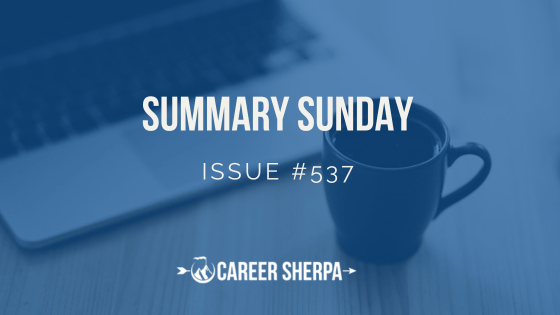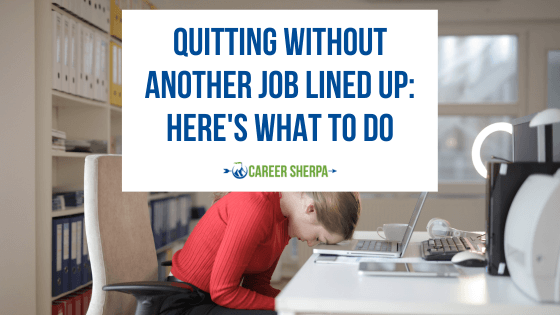
Balancing the demands of a career while nurturing a family is a juggling act that countless parents face every day. The modern world presents working parents with a unique set of challenges, from managing time efficiently to maintaining a healthy work-life balance. What can busy working parents do to excel both professionally and personally? How can they effectively balance work and family?
We recently asked our leading executives for their best tips for working parents.
Here are their responses…
Ana Smith, Leadership Development & Learning Strategist
Working parents in the digital age face unique challenges, but also have a plethora of opportunities and tools at their disposal. Here are some of the best tips for navigating this landscape:
1. Embrace Technology
- Use digital tools for organization and productivity, such as digital calendars, to-do lists, or apps specifically designed for families like Cozi or Trello.
- Engage in virtual telehealth appointments, parent-teacher conferences, or tutoring to save travel time.
2. Set Boundaries
- Designate a specific workspace in your home. When you’re in this space, your family knows you’re “at work.”
- Set specific “digital-free” times to fully engage with your family, devoid of work emails or distractions.
3. Educate Yourself and Your Kids About Digital Safety
- Discuss online privacy, cyberbullying, and the importance of strong, unique passwords.
- Use parental controls when necessary, but also teach your children about responsible internet usage.
4. Prioritize Quality Time
- Even if you’re using technology together, such as watching a movie or playing an online game, ensure youâre engaging in ways that foster closeness.
- Set aside tech-free zones or times in the home to ensure uninterrupted family moments.
5. Promote a Healthy Tech-Life Balance for Children
- Limit screen time and encourage physical activities, hobbies, and reading.
- Use tech as an educational tool, not just entertainment.
6. Stay Connected
- With the convenience of video calls, working parents can remain connected with their children even when they’re away. A quick midday call can work wonders.
- Use technology to stay involved in your child’s school life, such as accessing online grade portals or school communication apps.
7. Self-Care and Mental Health
- Utilize digital platforms for self-care and mental health, such as meditation apps, online therapy, or digital fitness classes.
- Recognize when you need a digital detox, and take short breaks away from screens.
8. Continuous Learning
- Digital landscapes are constantly evolving. Dedicate some time to learn about new tools, apps, or platforms that can make your life easier as a working parent.
9. Outsource When Needed
- Consider using digital services like grocery deliveries, virtual assistants, or online tutoring to help manage your time more effectively.
10. Maintain an Open Dialogue
- As children grow, their relationship with technology will change. Keep the lines of communication open and encourage them to share their online experiences, concerns, and discoveries with you.
11. Lead by Example
- Children often mimic the behavior of their parents. Model good digital habits and a healthy relationship with technology.
The digital age certainly presents challenges for working parents, but by leveraging the opportunities it offers and setting boundaries, you can promote a balanced and fulfilling family life.
Ana Smith helps people & organizations achieve their full talent potential by developing and co-creating people strategies and customized solutions, and turning them into impactful outcomes and collaborative relationships, using coaching as the “red thread.”
Michael Willis, Sports Business Operations Executive

The NFL has always been committed to fostering a workplace that encourages work-life balance and supports the unique challenges faced by working parents. Here are some compassionate suggestions for navigating the demands of our dynamic industry while ensuring a healthy family life:
1. Flexible Scheduling: Encourage managers to embrace flexible work arrangements that allow parents to adjust their schedules when needed. This can significantly assist with managing family responsibilities and job commitments.
2. Parental Leave Policies: Ensure our policies are comprehensive and accommodating. Offering ample time off for new parents is vital in helping them transition into their new roles.
3. Remote Work Options: Consider allowing parents to work remotely, at least part of the time, as it can provide the flexibility they need to effectively balance their family and professional lives.
4. Childcare Support: Explore partnerships with local childcare providers to offer discounts or on-site daycare options. This can ease the burden on working parents and provide peace of mind.
5. Mentorship and Networking: Facilitate mentorship programs and networking opportunities for working parents within the organization. Connecting with colleagues who have faced similar challenges can be invaluable.
6. Employee Resource Groups: Promote and support employee resource groups (ERGs) focused on working parents. These groups can provide a sense of community and a platform to discuss shared experiences and solutions.
7. Wellness Initiatives: Emphasize the importance of mental and physical well-being by offering wellness programs, stress-management resources, and counseling services for parents dealing with the juggling act.
8. Clear Communication: Encourage open and transparent communication between employees and supervisors. This helps in setting realistic expectations and finding mutually beneficial solutions.
9. Professional Development: Ensure that career growth and development opportunities are accessible to all employees, regardless of their parental status. This encourages retention and motivation.
10. Recognition and Appreciation: Recognize working parents’ hard work and dedication within the organization. Simple gestures of appreciation can go a long way in boosting morale.
Incorporating these strategies into our workplace culture demonstrates our commitment to supporting working parents and contributes to a more inclusive, empathetic, and motivated workforce. Together, we can create an environment where all employees, including working parents, can thrive in the fast-paced sports business industry.
Michael Willis has 18+ years of experience working with accounting & sports organizations and has managed P&Ls of $10M – $125M+ with budgets of $3M-$50M+. He worked for the NFL for 22 1/2 years, mainly with the game officials working on the financial/accounting side of the business.
Lisa Perry, Global Marketing Executive

As a mother of two girls and a brand marketing executive, I know the intricacies of balancing work and family and the numerous challenges it brings. âBalanceâ often felt like an elusive concept as I constantly made sacrifices, for work, family time, or personal well-being. Iâve been through the extremesâworking relentlessly, traveling extensively, and grappling with the guilt of being away from my children to declining work commitments to ensure Iâm present for girlsâ milestones and bedtime routines. Achieving harmonious work-life balance was a perpetual battle.
If you are a working parent, here are some tips that Iâve used that can help you make the balancing act a little easier:
- Prioritize Family: Spend quality time with your family to strengthen bonds and nurture happy, healthy children. Make family time a non-negotiable priority.
- Self-Care: As women, we often overlook self-care and end up stretched thin. Whether itâs a leisurely lunch with a friend, a spa day, regular exercise, or simply getting ample rest, taking care of yourself is crucial for mental well-being and resilience.
- Delegate Family Responsibilities: Consider delegating tasks if youâve shouldered most household chores as a working mom. Itâs okay if things arenât done your way; what matters is the quality time you gain with your family.
- Set Boundaries: Learn to say no to unrealistic work expectations and establish clear boundaries. This not only helps you focus but also opens doors to new possibilities.
- Open Communication: Maintain open communication with your boss and colleagues about your family responsibilities. A supportive work environment can make a significant difference in managing work and family life.
- Time Management: Effectively managing your familyâs time by creating synchronized schedules that balance work, family, and personalized activities. Coordination and alignment are key.
- Flexible Work Arrangements: Explore flexible work options like remote work or adjusted hours, if your job permits. These alternatives empower parents to meet their needs within a traditional 9-5 workweek.
Finding the right balance between work and family life is an ongoing journey. Adjustments are okay as your familyâs needs and work responsibilities change. If youâre eager to delve deeper into effective strategies, I invite you to explore my book How to Develop a Brand Strategy. Within its pages, youâll discover a comprehensive step-by-step guide to crafting a robust brand strategy that aligns seamlessly with your business objectives.
Remember, youâre not alone! With the right strategies and mindset, you can navigate the challenges of being a working parent while fostering a fulfilling life for yourself and your family.
Lisa Perry helps companies drive revenue by using consumer trends, insights, and data analytics to innovate their approach to marketing.
What are your best tips for working parents? Join the conversation inside Work It Daily’s Executive Program.

































